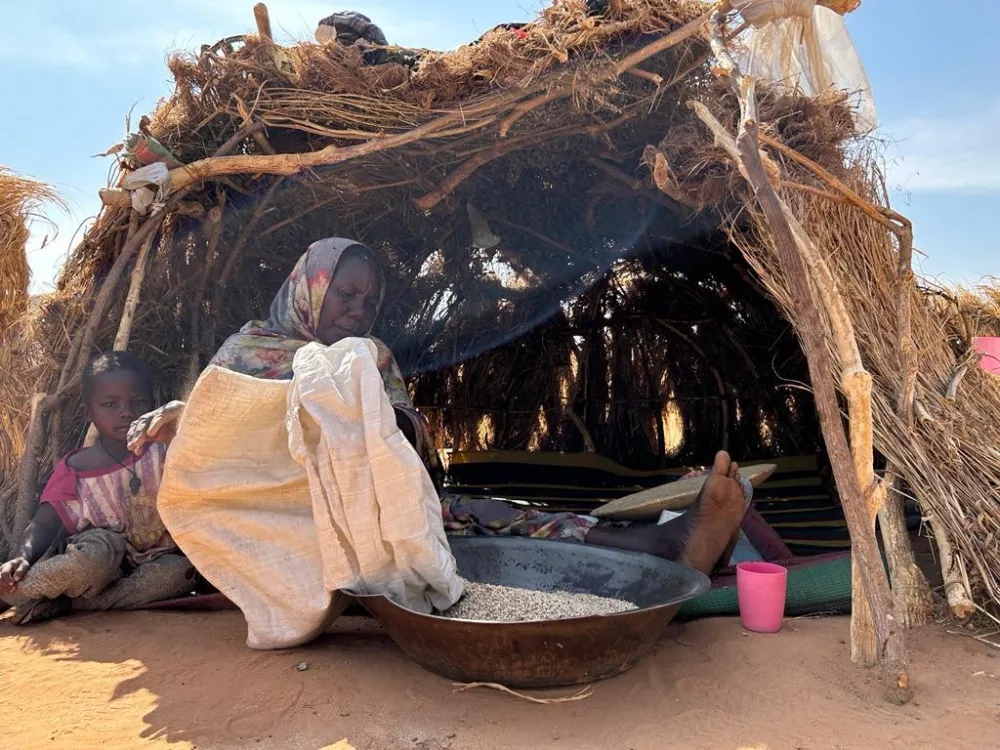Ethiopia’s Social Safety Net Programme Faces A Funding Gap As
Starvation Looms
Ethiopia's renowned social protection initiative, the
Productive Safety Net Programme (PSNP), faces a daunting challenge as it
grapples with a significant funding deficit amidst the looming threat of
starvation across various regions of the country. With around eight million
vulnerable individuals relying on its aid, the PSNP is one of Africa's largest
welfare schemes. However, escalating costs and reduced support from
international donors have left a gaping hole in its budget, amounting to
approximately $195 million over the coming two years.
In response to this fiscal crisis, the program has been
forced to implement severe cutbacks, slashing food and cash transfers to
beneficiaries. Instead of the customary six months of assistance, most
recipients will now only receive support for four months, effectively reducing
transfers by a third. Furthermore, the most vulnerable individuals, who
previously received aid for 12 months, will now see their support truncated to
10 months. Sintayehu Demissie, head of Ethiopia's Ministry of Agriculture's
food security coordination office, describes these measures as a "last
resort" aimed at sustaining support for beneficiaries while ensuring the
program's efficacy.
The urgency of the situation is underscored by the
humanitarian crisis gripping Ethiopia's northern highlands, particularly in the
Tigray region, where a devastating combination of drought and conflict has
pushed communities to the brink of famine. Despite the PSNP's primary mandate
as a resilience-building social safety net, its operations have been severely
disrupted in conflict-affected areas, exacerbating food insecurity for millions
of Ethiopians.
The repercussions of the funding shortfall are evident not
only in the reduced duration of assistance but also in the program's inability
to meet its targets consistently. Beneficiaries, who are supposed to receive 15
kilograms of cereals per person each month, often fall short of this quota,
further compounding their hardships. In Tigray, where the program had been a
lifeline for many, transfers were abruptly suspended in 2020 amid escalating
conflict, leaving vulnerable households without vital support during acute
need.
Despite these challenges, the PSNP has garnered recognition
for its achievements in mitigating food insecurity and building resilience
among vulnerable populations. Independent evaluations have highlighted its role
in reducing hunger and improving livelihoods, particularly in highland regions.
However, persistent funding shortages have constrained its impact, forcing
compromises such as altering the food basket and delaying cash disbursements.
Looking ahead, the sustainability of the PSNP hinges on
securing adequate funding and addressing systemic challenges that hinder its
effectiveness. International donors, including prominent contributors like the
World Bank and the United States, are urged to reaffirm their commitment to
supporting Ethiopia's social safety net initiatives. Additionally, concerted
efforts are needed to address underlying issues such as conflict, inflation,
and economic instability, which threaten to undermine the program's objectives.
In the face of mounting crises, Ethiopia's Productive Safety
Net Programme is a critical lifeline for millions of vulnerable individuals.
However, without urgent intervention to address its funding shortfall and
operational challenges, the program's ability to safeguard livelihoods and
avert humanitarian disasters remains in jeopardy.









.jpg)